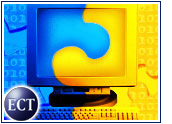
In what could be seen as a move toward confirming the merits of the Justice Department’s settlement with Microsoft, U.S. District judge Colleen Kollar-Kotelly has determined that the software giant offered ample disclosure of its dealings with the government in the antitrust initiative.
The judge said that both the Justice Department and Microsoft met legal standards in coming to a settlement agreement.
Under the Tunney Act, companies must reveal their government contacts. While Kollar-Kotelly said “Microsoft clearly could have been more fulsome in its descriptions,” she ruled that the company’s “disclosure is sufficient to satisfy” legal requirements.
Enough Details
The judge’s ruling conflicts with contentions by Microsoft foes, who have said that the company did not disclose nearly enough information.
But Kollar-Kotelly noted that the Tunney Act “does not mandate the release of particular details relevant to a defendant’s communications with the United States,” and that it only requires “information sufficient to inform the court as to whether there has been some improper contact between the United States and the defendant.”
She said that opponents were demanding too much, and that data provided to meet their requests “likely would do little to inform the court’s assessment of the public interest.”
Settlement Deferred
The Justice Department and Microsoft reached a settlement, some say too quickly, in November of last year. But the settlement has not been put into play, pending judicial review and Kollar-Kotelly’s affirmation that it is in the public interest.
Nine states have rejected the settlement as too lenient and have pursued their own antitrust case against Microsoft, asking Kollar-Kotelly’s court for stricter sanctions against the software behemoth.
Kollar-Kotelly recently asked the states and the software maker to attempt to find common ground with respect to their proposals. The states indicated that they would be willing to do so.
At the time, the states told the court that the most critical requirement in their suit was that Microsoft agree to share its source code, allowing competitors to develop products that are fully compatible with Windows.
Fighting Back
The states paraded witness after witness before Kollar-Kotelly to underscore what they said were unfair tactics designed to stop competitors in their tracks.
For instance, in written testimony, Novell’s chief technology officer Carl Ledbetter said Microsoft took conscious steps to degrade the performance of rivals’ operating systems.
Microsoft chairman Bill Gates, among other witnesses, also took the stand to deny accusations that Microsoft has behaved like a monopoly.
Sharing source code would make Microsoft “more like a company facing competition and less like a firm existing in a comfortable monopoly,” states’ attorney Steve Kuney told the court.
Beyond Affirmation
But Microsoft refused outright to compromise, choosing to play the odds and “challenging the judge to craft a decision on her own,” Aberdeen Group chief research officer Peter Kastner told the E-Commerce Times.
If the conclusion is unfavorable to Microsoft, the company would be able to appeal the decision and not be stuck with a compromise that “means Microsoft would give up, in management’s opinion, too much of the necessary [control] that they would need to innovate,” said Kastner.
While Kastner does not think Kollar-Kotelly will break the company up into small pieces, he does believe the judge will [do more than] simply reaffirm the agreement the Justice Department and Microsoft reached last November.





















































Social Media
See all Social Media